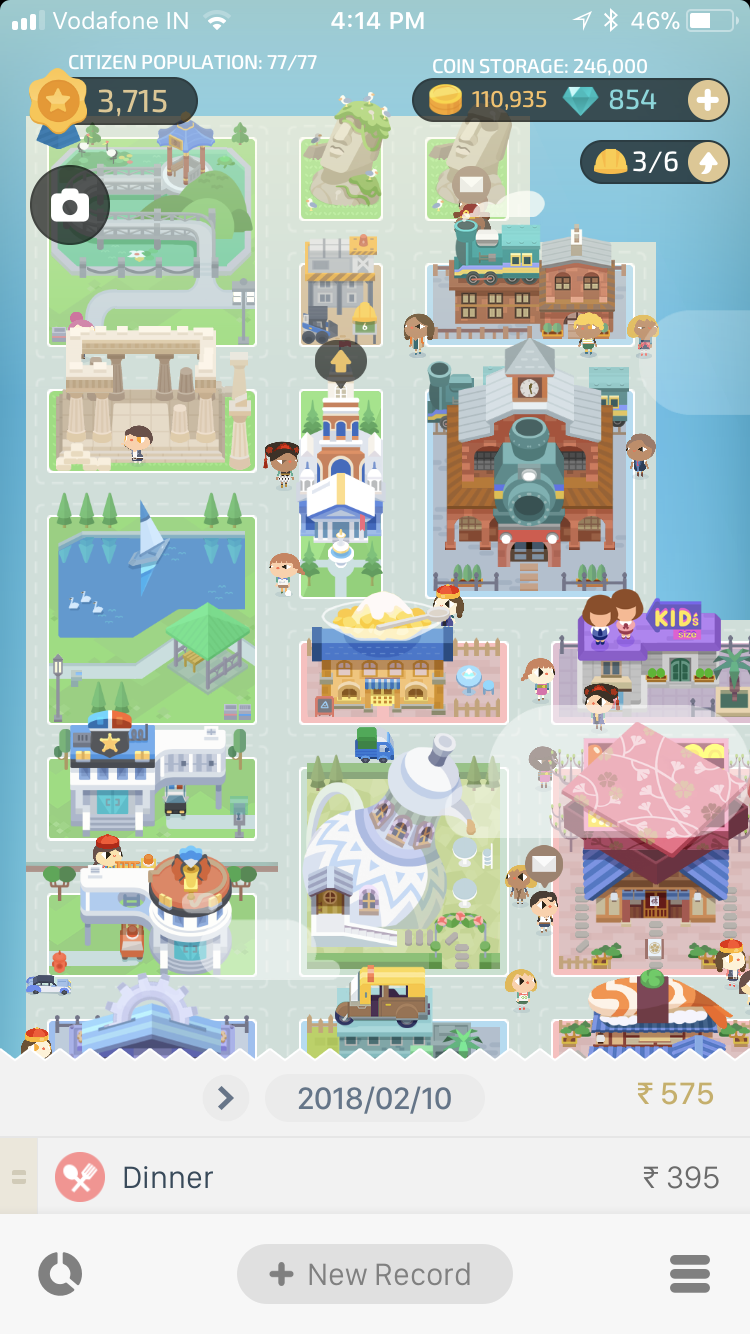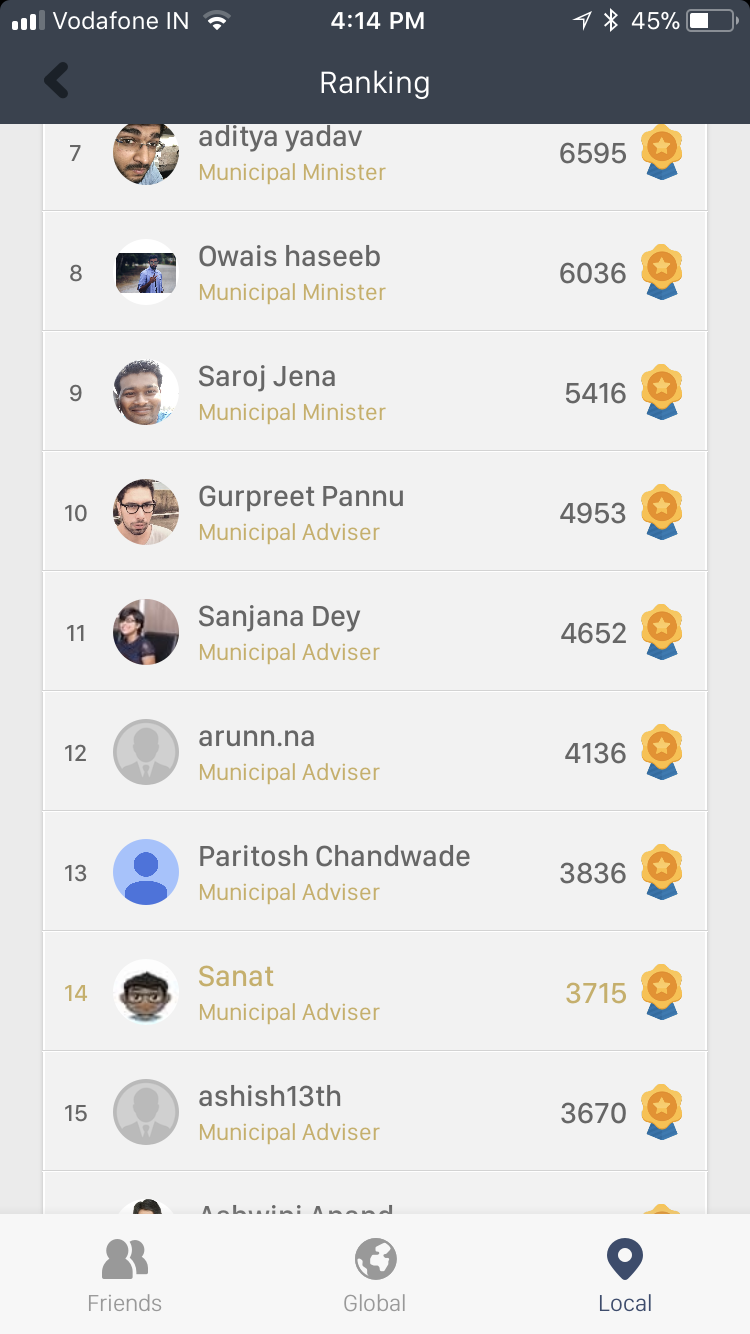The psychological tactics that keep me going back to Fortune city.

It’s a mobile app — that I feel stupid being an addict of. I’ve tried a lot of expense tracking apps. Personal expense tracking is important. It’s helpful to know how much you spend each month. As a business owner it’s sometime tricky to know how much you make. But it’s easier to figure out how much you spent. Little victories.
Let’s start with the the Fortune city app does. You add an expense each day, and assign it a category. The category defines the kind of building. A food entry builds a restaurant and a drink entry builds a juice bar. You get the picture. The reason most expense tracking apps did not work for me was because I wouldn’t go into the app everyday. I would do it only when I remembered to. And that is what’s different in fortune city. It’s a game based on the expense tracking that you do.

There are a lot of mechanics in the game to keep you coming back.
Here’s a list of things that the game does well.
- Incentivising the prime focus.
The foundation is one thing. Expense tracking. that’s what gives you the city that you play around with. They give you gems and other rewards for maintaining streaks. Giving you an incentive to fulfil the aim of the game. - An app with one purpose
It’s very rewarding for your user to do that one task. Building a product around one aim helps the product manager focus more on improving that one thing. This sort of increasing focus has lead to unbundling of apps. Swarm and Foursquare did this well. Not that the other way doesn’t work too . I’m in favour of singular focussed apps more than apps that do everything. - The game is simple to understand but has complex details.
The aim of the “Game” is to improve your city’s prosperity. It increases when you add buildings. Adding buildings increases the population limit. This in turn gives you more people to put in those buildings. The people in the buildings generate money. Money can be used to merge buildings together. You can do an in-app purchase to buy gems as well. Simple game mechanics, which this app does as well. - The prosperity score
This is the number one thing to track in the app. One thing to track makes it easy for someone to try to get better at this game. Reddit does it with karma and Swarm does it with coins for the week.
Prosperity increases slightly everytime you have a higher level building. That is simple. You get a lot of badges and gems for hitting milestones of number of entries of a type, or buildings or population. Which makes sense — as an incentive.
Prosperity depends on the kind of people you add to each building.
That’s one detail that I figured out only after playing for a long time. Each person has a score card of what their skills are like. Adding someone with a 10 out of 10 in Food — to a restaurant will increase the prosperity of the city. This amount of money that’s generated from the building increases as well. - Monetisation.
You get a fixed number of buildings you can create everyday. It starts at 5. The game has a set of builders — 5 — that make you the buildings. Adding the 6th expense does not add a new building since you only have 5 available for the day. The limit resets everyday — that’s your incentive to come check the app everyday. They also want you to buy stuff — so you can buy gems which you can use to upgrade your builders. But if you want to stay in the freemium tier, they’ve got you covered as well. There’s gems you can get by viewing video ads. These are reset everyday — there’s 7 of those. And these are reset regularly — you have to check the app to see if there’s a get gems symbol showing. To make you click through the people — they have random quests that give you gems as well. Similar to ads these are regularly reset. Most of these quests involve cycling through all the people in the city. To find a particular person. - Competition.
There’s a section which shows you your ranking based on your prosperity score. This is the primary reason I’m hooked to this game. I’m currently 14 in India. I check this country ranking screen at-least once in two days — to see where my competition is. I find myself playing to keep my ego satisfied that I’m better than the rest of the folks out there.

I think it’s important to keep looking at things that work in apps and find out why they do. That’s how you make your product better. Emulate the best.
We build web and mobile apps — talk to us if you want us to help in your product journey.